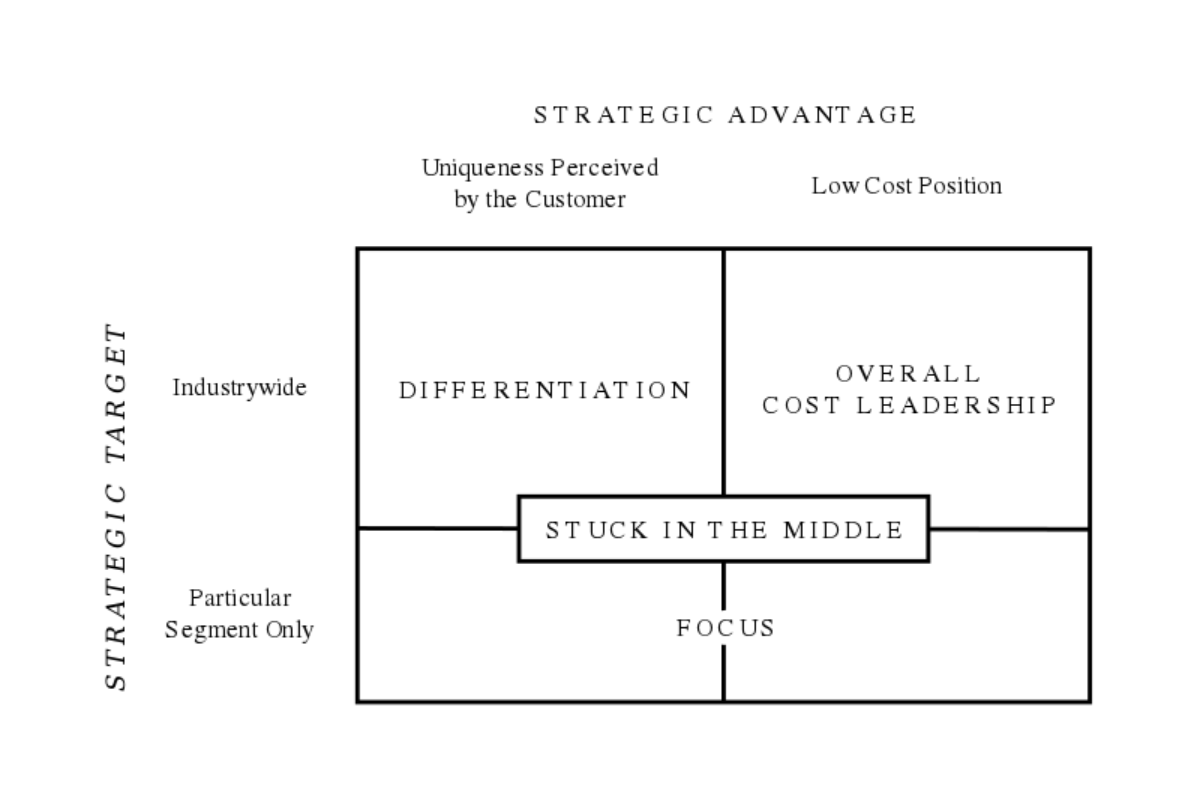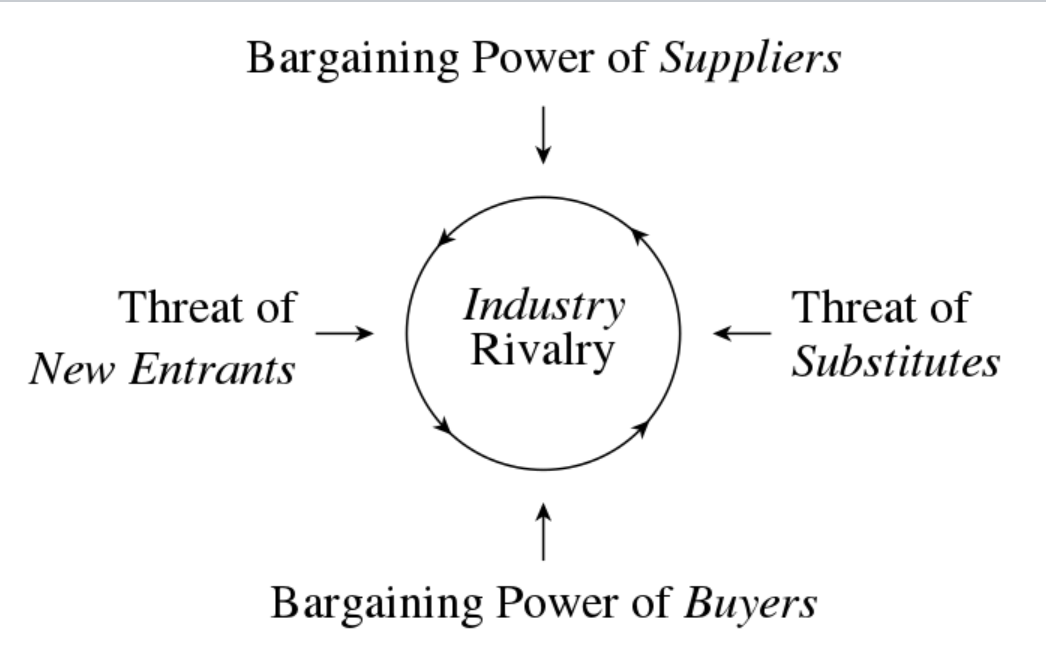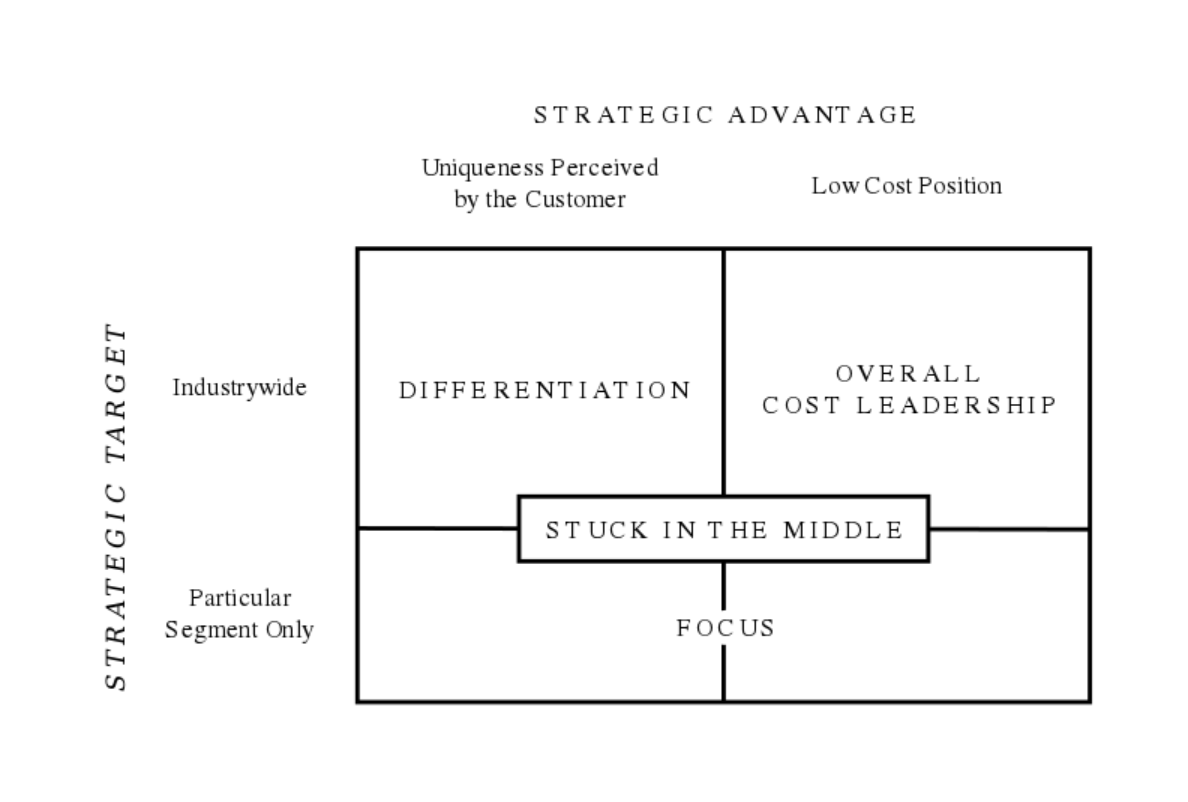Book Review: Competitive Strategy

Next up is Competitive Strategy by Michael E. Porter.
OK, I have to admit this was a tough one to get through. I'm not one of the type of people that can just stop reading a book before going to the next, so I had to do it.

If you go to business school, you're gonna get hit with some Michael Porter for sure.
First up, you got the 5 Forces

When an existing firm is competing in the marketplace, they need to be thinking about the forces that shape their industry. A good industry to be in is one that shields you from some of these forces, but you can also try to mitigate them if you find yourself in one that doesn't.
For example, if you are in an industry with low barriers to entry and the "Threat of New Entrants" is high, you can signal to the market that if anyone tries to enter you will drop your prices to make it painful. You could do this through PR or other signaling mechanisms.
Next up you get the 3 "Generic Competitive Strategies"
- Overall Cost Leadership
- Differentiation
- Focus

Every business needs to understand what their strategy is. If you are supplying Liquid Oxygen to the market, it is doubtful that a Differentiation strategy would be a good one.
For startups, I think the Focus strategy is probably the most beneficial. If you can focus on a very specific subset of users and solve their problem really well, you can actually achieve Differentiation or Cost Leadership for these specific users. Once that is completed, you can then expand out. If you try to focus on the market as a whole, a new entrant is going to struggle unless they have some unique technology.
The rest of the book talks a lot about different scenarios and how you can frame and attack the problems in your industry. For example, how would a company in an Emerging Industry compete vs. one that is in a Declining Industry.
One piece of info that really stood out to me was related to Press Releases. These always seemed like a waste of time to me, because there is usually no substance to them. The book talks about how they can be used for signaling devices to competitors. For example, you can let them know if they take action X you will take action Y. Also, I found it interesting that it is just a general strategy to make a claim that may or may not actually happen in the future to try and dissuade competitors from taking another action. For example, you could announce a factory expansion scheduled for next year in the hopes that your competitor will decide not to also do an expansion and drive prices down, even if you have no actual plans to do your own factory expansion.
Overall I'm glad I struggled my way though the book, and it will probably be a good reference to go back and look up strategies for different scenarios in the future.
Get it on Amazon here.
